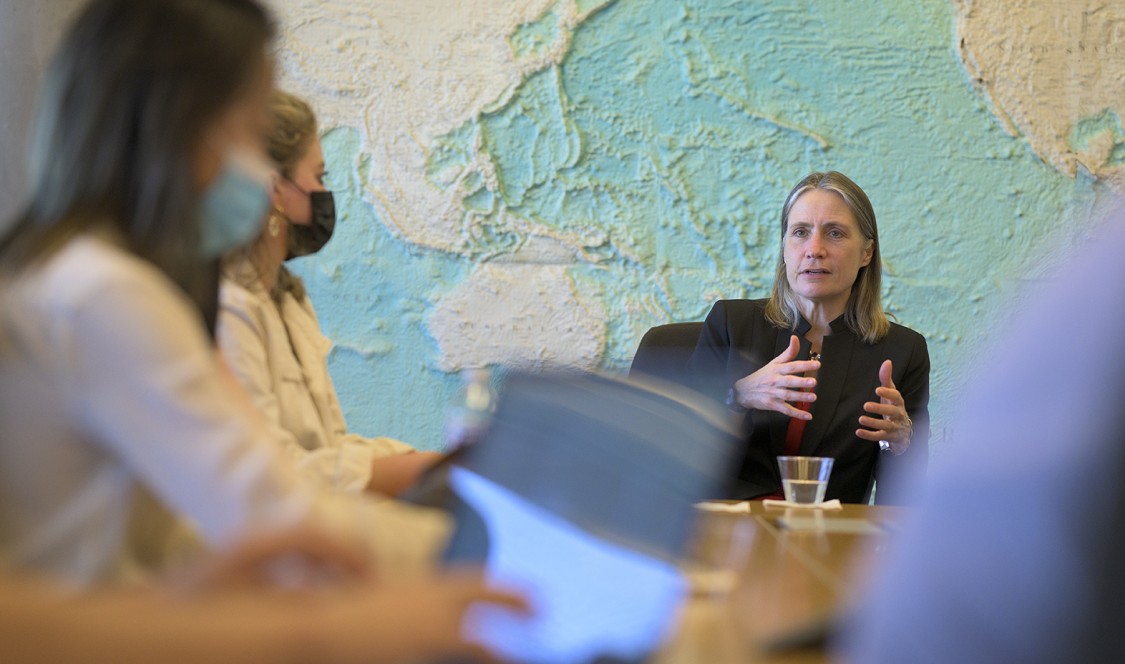On Feb. 24, 2022, Russian President Vladimir Putin ordered an invasion of Ukraine, instigating the largest military conflict since World War II. And the entire world is trying to make sense of it.
There could hardly be anyone better to discuss this crisis than Dr. Fiona Hill, a leading expert on Russia, Eastern Europe, and Eurasia, who engaged a packed audience at the Athenaeum on March 9.
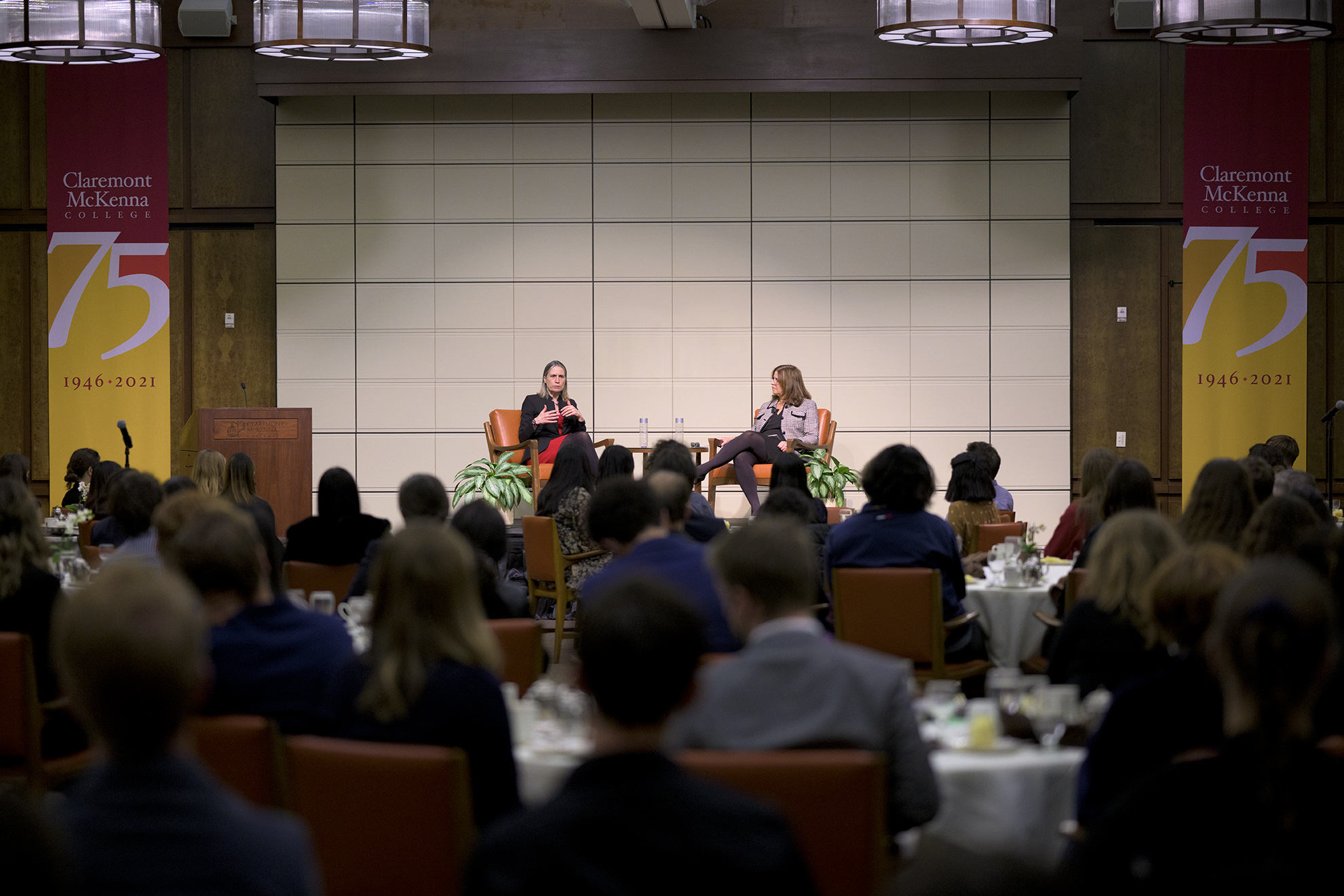
Hill addressed the theme of “Unity and Division” as part of CMC’s 75th Anniversary Distinguished Speaker Series. A senior fellow in the Center on the United States and Europe in the Foreign Policy program at the Brookings Institute, Hill has served three U.S. presidents including George W. Bush and Barack Obama. Most recently, she was deputy assistant to President Trump and senior director for European and Russian affairs on the U.S. National Security Council from 2017 to 2019. The Athenaeum conversation was moderated by Hilary Appel, the Podlich Family Professor of Government, George R. Roberts Fellow, and director of the Keck Center for International and Strategic Studies at Claremont McKenna College.
The discussion and the student Q&A covered a breadth of issues from the U.S. response, to China’s part in the crisis, and the potential legacies of this war.
Appel’s first question arose from discussions in her classroom. The potential that Ukraine might join NATO, and “all the other pretexts that we heard about such as denazification of Ukraine also are preposterous,” Appel said. “They are not explanations for this war.
“So, why did Russia invade Ukraine?”
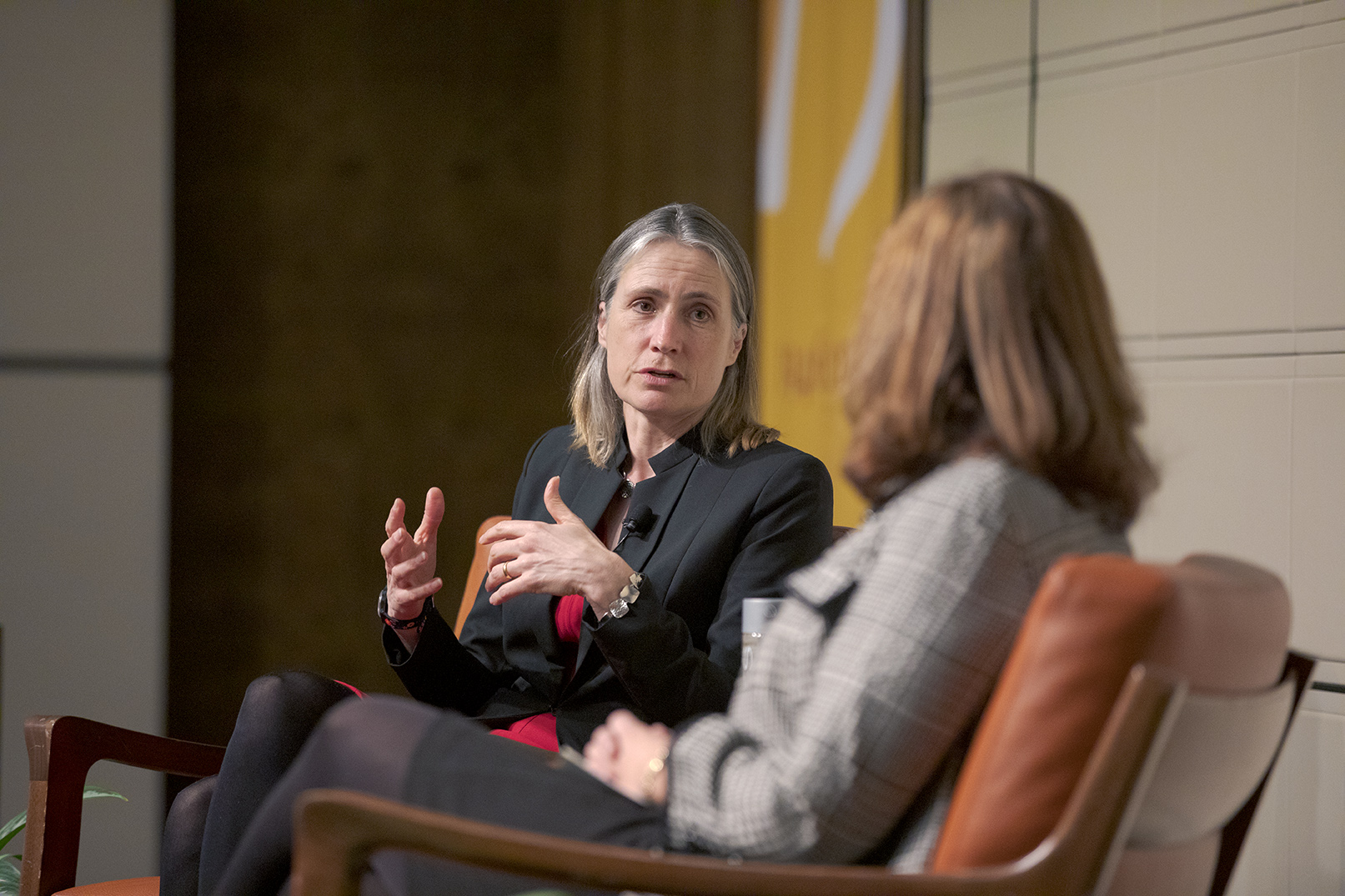
“This is of course the major question that everyone has been grappling with,” Hill said. “I want to say first of all that Russia, per se, hasn’t done this. This is a decision made by one man and a small group around Vladimir Putin, and has a lot to do with the way he thinks about the world.”
That viewpoint has its roots in history, Hill said, going back to the 17th century and the Treaty of Andrusovo when parts of Ukraine were given to Russia. She added, “Putin clearly believes that there needs to be some kind of reversal of the consequences of the dissolution of the Soviet Union” in 1991, which he called “the greatest geopolitical catastrophe” of the 20th century.
“All of this is about loss,” Hill said. But Putin’s loss was Ukraine’s gain. “They gained a country,” and “they don’t want to go back to … 1667, 1977.”
Appel brought up the unprecedented response to the invasion. “Putin has been given credit for being a brilliant tactician, … but clearly, in this case, he has miscalculated,” she said, citing everything from the Ukrainian resistance and Russian military underperformance, to a strong and united West, and severe economic consequences for Russia from governments and private corporations.
Despite his miscalculations, Putin is not backing down.
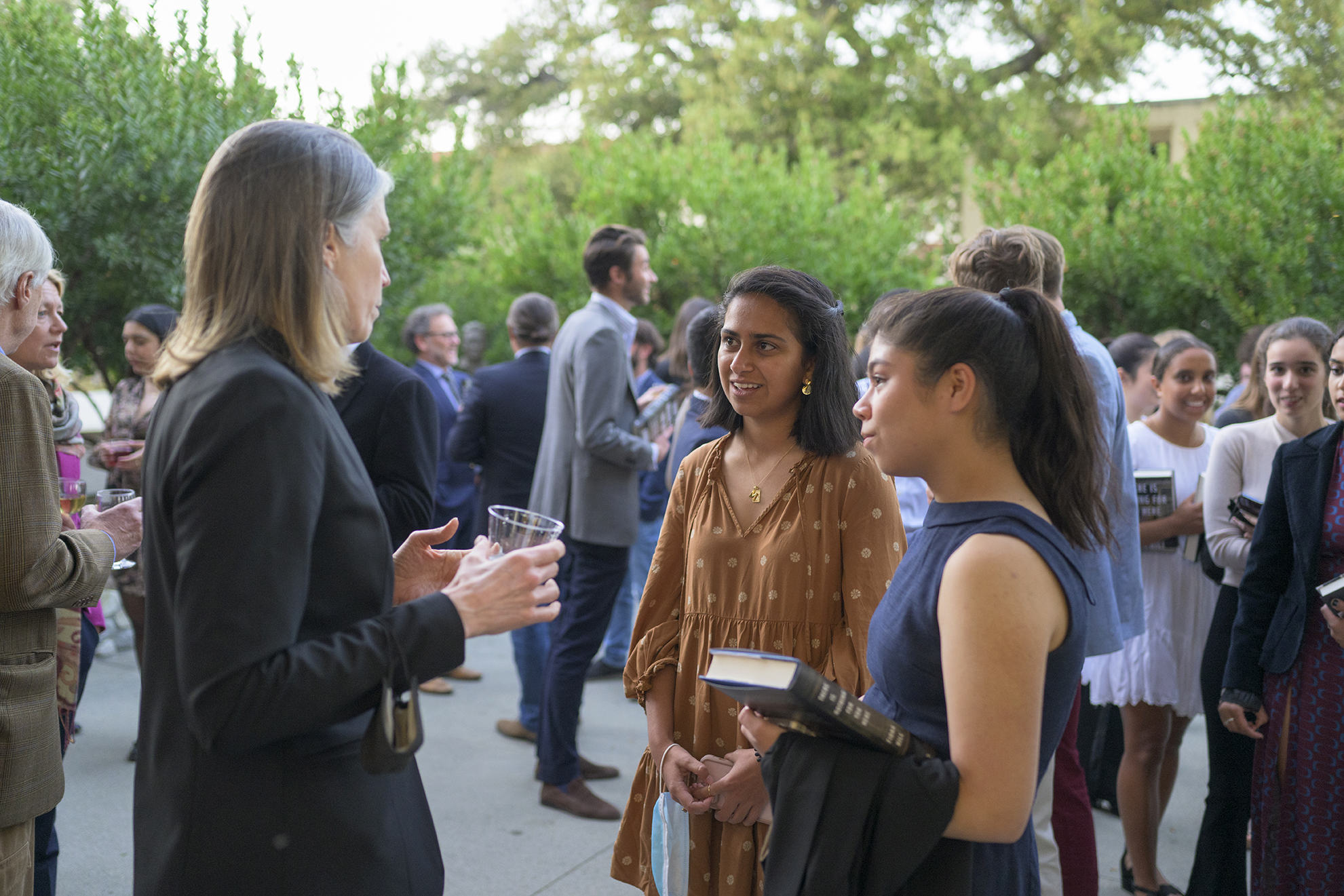
“This is very worrisome,” Appel said. “I feel that Putin the man has so much to lose if he fails in Ukraine. If he fails in Ukraine, he cannot survive as the Russian president. … He will fight to the bitter end, and he will use every weapon at his disposal to do so.
“Given the danger of escalation, what can the United States do to prevent … a nuclear catastrophe?”
“That’s definitely what’s keeping me up at night,” Hill said. “He’s already shown that he’s willing to do really nasty, ruthless things and to use unusual and cruel punishments. …. You can be sure he’s trying to figure out some way of escalating the situation so that we de-escalate. … He wants to get us to the negotiating table. He wants to change the conversation from just being about Ukraine to about the future of nuclear war.”
“What we have to continue to do,” she said, “is not rise to the bait, and engage with the other national powers … to push back against that and to head off any pretext that Putin may be trying to make about this.”
That unified front needs to start with our own polity, Hill suggested in response to a student question.
“I'm worried about the party infighting, the political performances that we started seeing, the lack of responsibility in people's rhetoric, and this tendency that we always have to fall upon each other at times like this. Because again, I think this is precisely why Putin thought he could get away with this,” Hill said.
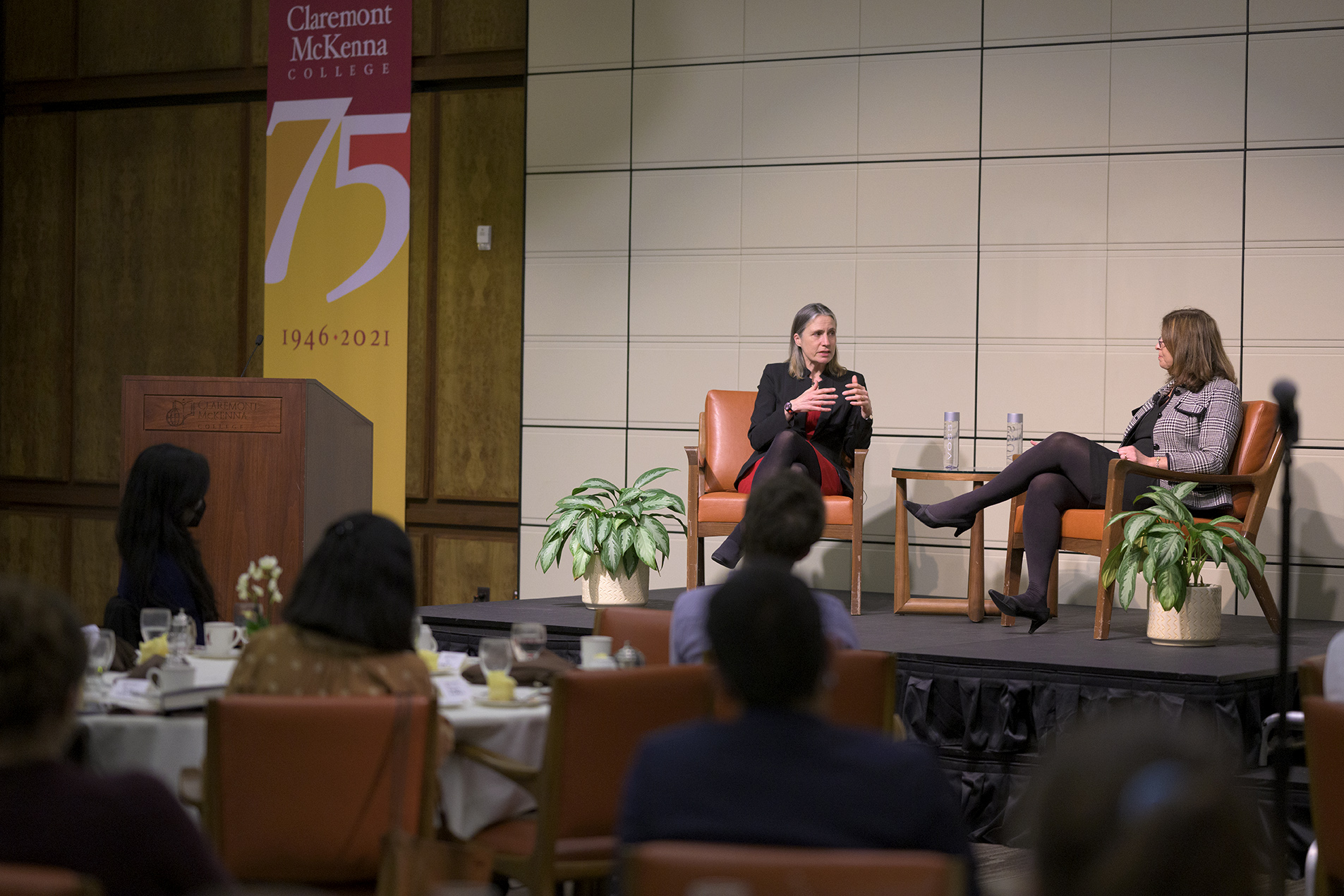
“So, we need to be basically very clear that members of Congress, the Senate, our whole political class need to be pulling together, to try to find ways of stopping this war and making it very clear that this is unacceptable, and trying to then put on a collective front as much as we can to engage with our allies and partners.”
Watch the entire Athenaeum discussion with Dr. Fiona Hill and Prof. Hilary Appel.

